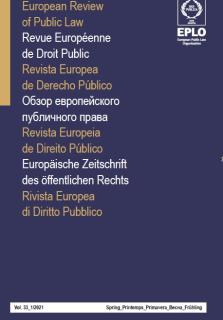
Changes in the Teaching of Law – A View from Germany
Professor of Public Law, in particular Administrative Law at Georg August University Göttingen, Germany
The teaching of law at German universities and professional legal training in Germany are committed to the paradigm of the unitary legal expert (Einheitsjurist). Characteristics of studies at German law faculties are the extensive amount of material examined in the first state examination and therefore taught, the dogmatic approach and the strong focus on the ability to deal with hypothetical cases in the compulsory subjects. The so-called areas of specialisation (Schwerpunktbereiche) introduced in 2003 allow more flexibility. The general framework for legal education in Germany is defined at federal level by the German Judiciary Act. Legal education at universities in the compulsory subjects is determined by uniform legislation at state level. By contrast, content, structure and examinations in the areas of specialisation lie in the responsibility of each law faculty. It is particularly in the areas of specialisation that academic research and writing can be taught, innovative teaching formats can be tested and interdisciplinarity, internationalisation and legal practice formats play a greater role. Lately, the challenges presented by the COVID-19 pandemic have given a boost to the digitisation of teaching, which should also be used to complement face-to-face formats in the future.
L’enseignement du droit dans les universités allemandes et la formation juridique professionnelle en Allemagne sont attachés au modèle de l’expert juridique unitaire (Einheitsjurist). Les études dans les facultés de droit allemandes se caractérisent par la grande quantité de matériel examiné lors du premier examen d’Etat et donc du matériel enseigné, par l’approche dogmatique et par l’accent mis sur la capacité à traiter des cas hypothétiques dans les matières obligatoires. Les “domaines de spécialisation” (Schwerpunktbereiche) introduits en 2003 permettent une plus grande flexibilité. Le cadre général de l’enseignement juridique en Allemagne est défini au niveau fédéral par la loi sur le pouvoir judiciaire allemand. Dans les matières obligatoires, l’enseignement juridique universitaire est déterminé par une législation uniforme au niveau des Etats. Dans les domaines de spécialisation, en revanche, le contenu, la structure et les examens relèvent de la responsabilité de chaque faculté de droit. C’est notamment dans les domaines de spécialisation que la recherche et la rédaction universitaires peuvent être enseignées, que des formats d’enseignement innovants peuvent être testés et que l’interdisciplinarité, l’internationalisation et les formats de pratique juridique jouent un rôle plus important. Récemment, les défis présentés par la pandémie COVID-19 ont donné un coup de fouet à la numérisation de l’enseignement, qui devrait également être utilisée à l’avenir pour compléter les formats en présentiel.
* I would like to thank my student assistant Liz Mathy for valuable research assistance.





















